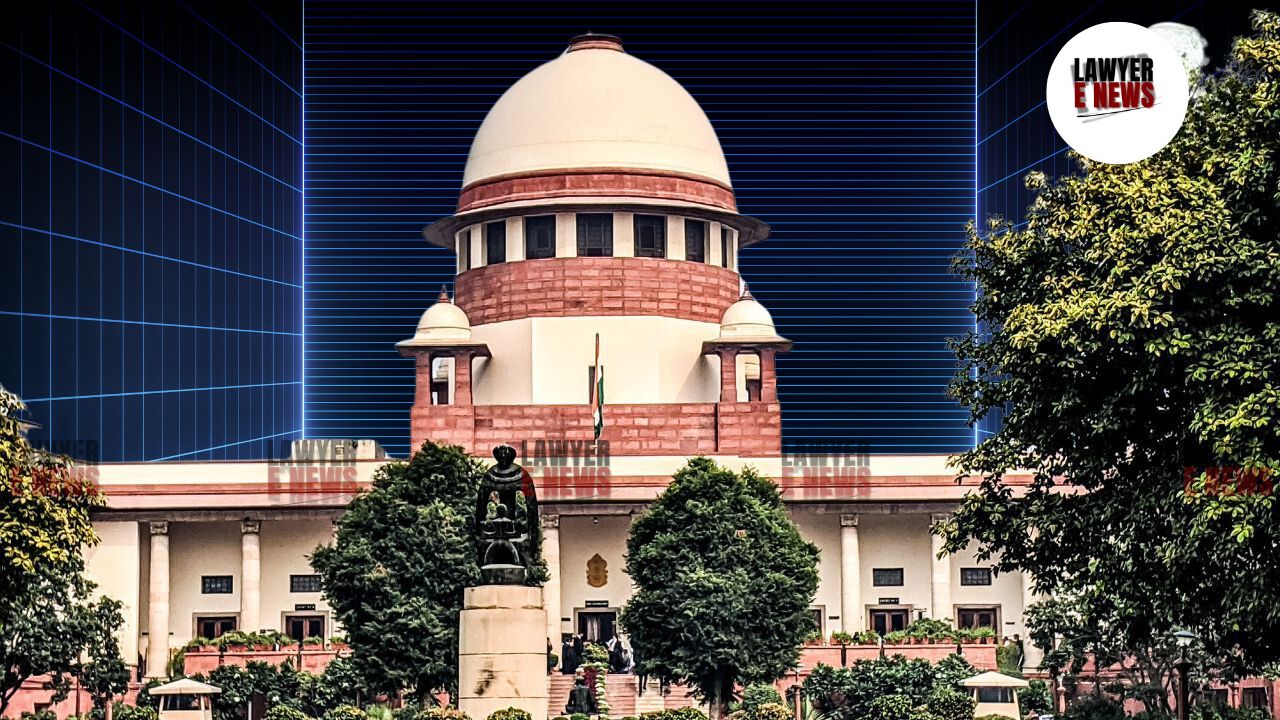-
by Admin
16 February 2026 1:47 PM



“Sub-Registrar Cannot Judge Title — Has No Adjudicatory Powers”: - In a significant judgment delivered on April 7, 2025, the Supreme Court of India struck down Rule 55A(i) of the Tamil Nadu Registration Rules as ultra vires the Registration Act, 1908. The Court ruled that Sub-Registrars do not have the authority to verify or refuse registration based on ownership or title, holding that such power is inconsistent with the statutory scheme of the Act.
This landmark decision was delivered in the case of K. Gopi v. The Sub-Registrar & Ors., Civil Appeal No. 3954 of 2025 by a bench comprising Justices Abhay S. Oka and Ujjal Bhuyan, restoring the right of citizens to get their documents registered without facing title scrutiny at the registry.
“Registrar’s Role Is Ministerial, Not Judicial” – SC Warns Against Expansion of Bureaucratic Discretion in Property Transactions
The controversy arose when K. Gopi, the appellant, purchased property through a registered sale deed from one Jayaraman Mudaliyar. The Sub-Registrar refused to register the deed, citing Rule 55A(i), claiming that the vendor’s title was not proved.
Despite Gopi approaching the District Registrar, who directed reconsideration, the Sub-Registrar insisted on production of title documents and again rejected the registration. Gopi’s writ petition was dismissed by the Madras High Court, relying on Rule 55A.
However, the Supreme Court categorically held:
“The registering officer is not concerned with the title held by the executant. He has no adjudicatory power to decide whether the executant has any title… Even if the executant has no title, the registrar cannot refuse registration if procedural compliances are met.”
“Rule 55A(i) Empowers Registrar to Act as Civil Judge — Which the Act Does Not Permit”
Rule 55A(i), introduced by Tamil Nadu, required the presenting party to submit prior title documents and a recent Encumbrance Certificate, failing which the registration would be refused. The rule even provided for refusal if original deeds were lost unless a police “non-traceable” certificate and newspaper ad were submitted.
The Court examined Sections 22-A, 22-B, and 69 of the Registration Act and ruled that no such power exists in the statute:
“Rule 55A(i) is inconsistent with the provisions of the 1908 Act… The rule-making power under Section 69 cannot be exercised to make a Rule that is inconsistent with the Act.”
“There is no provision under the 1908 Act that allows refusal of registration on the ground that the vendor has not proved his title.”
SC Restores Simplicity of Registration Process: Title Disputes Must Be Resolved in Civil Courts, Not at Registry Counters
Highlighting the danger of vesting quasi-judicial powers in registration officials, the Supreme Court reaffirmed: “It is not the function of the Sub-Registrar or Registering Authority to ascertain whether the vendor has title to the property. Their role is ministerial — to ensure that the parties appear and admit execution, and that all procedural formalities and payments are completed.”This ruling has deep ramifications for property transactions across Tamil Nadu and potentially other states with similar rules, as it re-establishes civil courts — and not registrars — as the proper forum for title disputes.
In its operative directions, the Court:
Declared Rule 55A(i) as ultra vires and invalid;
Quashed all judgments and orders relying on the said Rule, including the Madras High Court’s rejection of the appellant’s writ;
Directed the Sub-Registrar to register the sale deed upon procedural compliance within one month;
Allowed the appeal in full.
Date of decision : April 7, 2025
